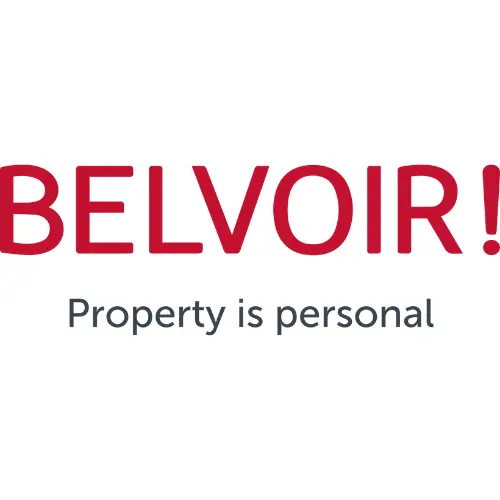Advertising Fee
An annual fee paid by the franchisee to the franchisor for advertising expenditures; usually less then three percent of the franchisee’s annual sales and usually paid in addition to the royalty fee. Not all franchisors charge advertising fees.
Advertising Fund
A continuing periodic payment to the franchisor that, like the royalty payment, can be a fixed amount or a percentage of gross sales.
Arbitration
A dispute mediating process in which each side selects their representative, in addition to the participation of a chosen third (impartial) individual.
Area Franchise (aka Area Development Agreement, Master Franchise)
A franchise granted to develop a defined geographical area. May include a strict performance schedule and franchise sales rights.
Assignment /Fees
The monthly fees paid to the franchise company in order to support corporate marketing and advertising. This fee is typically a percentage of your gross revenues.
Business Format Franchising
The franchisor licenses the franchisee a complete plan – a business format, operating system and trademark to his/her franchisee. The plan provides step-by-step procedures for major aspects of the business and, anticipating most management problems, provides a complete matrix for management decisions confronted by the franchisees.The franchisor also teaches the franchisee the entire business format and provides support via training and communications to the franchisee for the duration of their business relationship.
Business Plan
A document that summarizes the operational and financial objectives of a business and contains the detailed plans and budgets showing how the objectives are to be realized. Because the business plan contains detailed financial projections, forecasts about your business’s performance, and a marketing plan, it’s an incredibly useful tool for business planning.
Capital Required
The amount of cash you are required to have available.
Company-owned Outlet
Some franchisors establish company-owned stores or offices that, in appearance, are identical to the franchised outlets.
Conversion Franchise
This is a franchise that permits existing businesses to join a national franchise system to use its recognized name and trademark and operating system.
Copyright
The exclusive right of a person to use, and to license others to use, an intellectual property such as a book, pamphlet, or other published material.
Demographics
A range of factors that may influence consumer behavior in a specific trade territory e.g. age, income, house prices, industry, socioeconomic conditions.
Designated Supplier
Approved, chosen suppliers of products and services – all of who meet the requirements of a particular franchise company.
Disclosure
Revealing facts to others. In the sense used herein, these facts may be complimentary to the franchisor or may be uncomplimentary, such as disclosing a prior bankruptcy or litigation involving the franchisor or key persons as defendants.
Disclosure Document
All franchisor should provide this document to prospective franchisees at the first personal meeting to discuss the sale of the franchise, and at least ten business days prior to the prospective franchisee signing a franchise agreement, or paying the franchisor money to buy the franchise. The document aids the prospective franchisee’s evaluation of the franchisor company.
Dispute Resolution
Most franchise agreements written today include a provision for alternative dispute resolution methods because of the expense and delay involved in using the courts. Like some marriages, not all franchise relationships are compatible and disagreements do occur on occasion. The two most common methods of handling disputes are by arbitration and mediation.
Distributorship
A right granted by a manufacturer or wholesaler to sell a product to others. A distributorship is normally not a franchise. However, certain distributorship arrangements may qualify as a franchise, may be licensed or be adjudged a business opportunity requiring disclosure.
Equity Investment
The amount available to be borrowed against your security property based on a formula calculated by the lending institution.
Earnings Claims
Assertions of specific acquired sales levels or profitability levels declared by franchise companies.
Estimated Initial Investment
A detailed listing of all fees and expenses you can expect to incur in starting your franchised business. This listing represents the total amount that you would need to pay or get financing for, including fees paid to the franchisor; estimates for furniture; fixtures and equipment; opening inventory; real-estate costs; insurance inventory; etc. This estimate should include a provision for working capital through the start-up phase.
Exclusive Territory
Where the franchised business is to be operated from a single location, the franchisee may receive exclusivity solely to that site or to a market area usually a set distance surrounding the location. In a mobile service business the franchisee may be awarded a geographical territory large enough to ensure growth potential. A franchise system can be impaired by having too many franchisees in one market where there may not be enough business to support them, but on the other hand a cluster of units where they are not directly competing, can take advantage of the synergy that is created by dominating the market, keeping out the competition and benefiting from joint marketing promotions.
Franchise
” A franchise is a grant by the franchisor to the franchisee, entitling the latter to the use of a complete business package containing all the elements necessary to establish a previously untrained person in the franchised business, to enable him or her to run it on an ongoing basis, according to guidelines supplied, efficiently and profitably”. How to Franchise Your Business, FASA
Franchisee
The franchisee buys the right to run the business using the trademark and trading system. The business is run according to the procedures set out in the franchise operating manual and under the terms of the franchise agreement.
Franchisees should be:
• Capable of absorbing new concepts quickly.
• Willing to follow the franchisor’s blueprint to the letter.
• Positive people-persons imbued with the necessary enthusiasm to market the business and motivate staff.
• Adequately resourced to meet the initial (capital investment) and ongoing (working capital) financial requirements of the business.
• Able to manage and control the business, and willing to drive the brand at local level.
• Prepared to co-operate with the franchisor’s team as well as with fellow franchisees, and play an active part in programs offered by the network.
• Determined to build the business into the best and most successful in the territory.
• Convinced of the merits of the franchise and the brand, and prepared to defend both against possible attack by competitors or others.
Franchise Agreement
A written contract detailing the mutual responsibilities of franchisors and franchisees. It is usually for a several-year term, and when the term is up, the contract expires and must be renewed. Some Country laws require the contract to be renewable at the franchisee’s option. Usually a franchise agreement may not be sold, transferred, or otherwise assigned without the franchisor’s permission.
Franchise Fee
A one-time fee paid by the franchisee to the franchisor to “buy into” the franchise. Generally, the fee reimburses the franchisor for the costs of initial training and support for new franchisees.
Franchising
Neither an industry nor a business, but a method of doing business within a given industry. At least two parties are involved in franchising: the franchisor and the franchisee. Technically, the contract binding the two parties is the franchise.
Franchise Agreement
A written agreement that details the expectations and requirements of the franchisor. It describes the franchisor’s commitment to the franchisee and includes information about territorial rights of the franchisee, location requirements, training schedule, fees, general obligations of the franchisee, general obligations of the franchisor, etc. It is usually set up for a fixed period which requires renewal after expiry.
Franchise Contract
The legal agreement between the parties which sets out the terms under which the Franchisee will operate the business. The terms usually include the following:
• The right to use the trade name
• The Franchisee’s obligations
• The Franchisor’s obligations
• The premises and the territory
• Length of Franchise contract
• Financial aspects such as initial franchisee fee and ongoing royalties
• Renewal terms
• Control of standards
• Rights of sale
• Performance targets
• Termination
• Effects of termination
Franchise Feasibility Studies
Franchising can be a highly effective method of financing expansion through the acquisition of outside capital. The objective of a franchise feasibility study is to determine the degree to which a company, whether a well-established one, a small operation of one or two units, or simply a concept that bears the characteristics of a successful franchisor, may be successful as a franchisor.
Franchisor
The franchisor owns the business system and associated trademarks or trade names. Franchisors allow franchisees to use these under license in a designated area and for a fee. They then support their franchisees both in starting their business and in continuing to make it work.
The franchisor should: –
• Know every facet of the business and have a hands-on approach to problem solving.
• Be honest and forthright in all dealings.
• Have operated the business he wishes to franchise for a reasonable period. Agreement exists that the minimum period should be one to two years but research has shown that most companies wait for six years or more before they roll out a franchise.
• Have adequate financial resources to develop the concept and make the necessary investment into the brand.
• Want to grow through others, and be prepared to share the rewards resulting from teamwork with franchisees.
Head Lease
Locations where the franchisor has leased the premises and then sublets to the franchisee. There are a number of reasons for this practice. Landlords prefer to have the company financially committed in exchange for leasing prime locations, possibly providing tenant inducements of some free rent or financial assistance towards the tenant improvements such as lighting, floor covering and washrooms. Many times the franchisor finds an ideal site and leases the space before a suitable franchise applicant has been found. A turn key situation is where the premises are completely ready to open for business by the time the franchisee completes their training. If the head lease is not held and the franchisee negotiates the lease, the franchisor usually reserves the right to approve any lease, sub-lease or other tenant-landlord relationship which is established.
Identify Items
Those items (such as paper products, uniforms, point of sale materials or exterior signs) are usually required to be used in a franchisee’s business. These items display the registered trademarks of the franchisor.
Initial Investment
Usually includes the franchise fee and the total investment amount including working capital required to commence operating a franchise.
Job franchising
The franchisee actually does the work that provides the service to their customers.
Management franchising
The franchisee recruits, organizes and manages a team who provide the services
Marketing Plan
A technique by which franchises are to be sold. Includes the number of sales anticipated within a series of time periods (first year, second year, etc.), to whom those sales are to be made (profile of the individual, area franchising, sub-franchising), and the anticipated geographical expansion of the franchise system.
Master Franchisee
In master franchising, the franchisor grants the master franchisee the right to act as the franchisor in the target territory. The master franchisee may open his or her own outlets, sub-franchise or do both. The primary advantages to the franchisor of master licensing are: limited capital investment; tapping into the master franchisee’s knowledge of the local market and only having to deal with one party.
Master Region
The region that a master franchisee acquires.
Multi Level Marketing (MLM)
A form of distributorship in which you receive commission on your own sales and on the sales of others whom you sign up as distributors. Some MLMs are considered pyramid schemes and illegal in some countries. Some are legitimate business opportunities. Any business of this nature should be investigated closely.
Multiple Unit Franchising
The franchisor awards the right to a franchisee to operate more than one unit within a defined area based on an agreed upon development schedule. If the franchisor decides to expand into a new geographical area which may be a city or province and does have the resources or staff to handle this growth themselves, a Master Franchise, Sub-franchise or an Area Development agreement is structured with a party who will use their resources to develop the franchise network by granting unit franchises to others or establish their own outlets, provide the training and local ongoing support.
Non-competition Clause
Prevents the franchisee from entering a similar line of business not only during the term of the agreement and renewal terms, but also for a period of time after the agreement ends unless prior approval has been received from the franchisor.
Offer
An oral or written proposal to sell a franchise to a prospective franchisee upon understood general terms and conditions.
Operating Manual or Operations Manual
Comprehensive guidelines advising a franchisee on how to operate the franchised business. It covers all aspects of the business, including general business procedures not necessarily peculiar to the franchised business. It may be separated into different manuals addressing such subjects as accounting, personnel, advertising, promotion and maintenance.
Percentage Rent
A Lease may have a percentage rent fee clause, which means once a target sales figure has been reached, you will pay the landlord a percentage of sales there on in on top of normal rent payments.
Person (by definition in franchise context)
An individual, partnership or corporation.
Pro Forma
A balance sheet, profit and loss or cash flow statement which estimates income and expense sources. Assets, liabilities and net worth are forecast on the balance sheet. Pro forma statements issued by the franchisor to the franchisee should be based on actual operating results of the franchisor’s units or franchise establishments.
Protected Territory
A designated area or geographic boundary granted to the franchisee by the terms of a franchise agreement. The franchisor agrees not to open another franchised or company owned business of a like or exact nature within the franchisees protected (assigned) territory.
Quality Control
The method by which the franchisor enforces the rules of operation set forth in the operating manuals. Quality control involves Regional Coordinators visiting each franchisee.
Qualification Questionnaire
A document prepared by the franchisor to be completed by the prospective franchise, which provides initial information to the franchisor in order to assist him in determining whether or not the prospect is capable and motivated. Often a financial statement is included in the questionnaire format.
Regional Development Agreement (a.k.a. Regional Franchisee, Regional Coordinator Franchisee)
A franchise granted to develop or sell a person’s franchise rights to a third party in a defined geographical area. A portion of the franchise fee is normally paid in advance for a certain minimum number of franchise outlets which may be activated by the Regional Franchisee or sold at a disclosed fee to an individual franchise buyer. This agreement normally awards a share of the initial full franchise fee and a percentage of the royalty payment.
Royalty
A continuing payment to the franchisor that is payable on a periodic basis (usually weekly, biweekly, or monthly) throughout the term of the franchise agreement. In theory this royalty payment is for:
• Compensation for the continuing services given by the franchisor (for training, field services, etc.)
• Payback financing of the true market value of the franchise. Royalty payments can be either fixed amounts, based on percentage of gross sales, or based on a sliding scale, with graduated breakpoints.
Rules of Operation (see Operations Manual)
Specific mandatory rules with which every franchisee and company outlet must comply. This document will change from time to time. By incorporation by reference in the franchise agreement, violation of the Rules of Operations allows the franchisor to cancel a franchise agreement.
Slick
A pre-prepared piece of advertising material usually composed by the franchisor for the franchisee for use in local print media. It is “camera ready”, meaning that newspapers or other media can use it without significant additional cost to franchisees for composition and makeup.
Total Investment
The amount of money estimated for complete set up of a franchisee’s business, including the initial investment, the working capital, and subsequent additions to inventory and equipment deemed necessary for a fully operational and profitable enterprise.
Trademark
A distinctive name or symbol used to distinguish a particular product or service from others. It can be used exclusively by the owner, and no one else can use it without the owner’s permission. Part of a franchise’s value is the right to use a recognized trademark.
Trade Secret (a.k.a. Proprietary product or service)
Knowledge in the possession of the franchisor which is revealed to the franchisee by the franchise transaction. Trade secrets may take the form of construction or operating procedures; a formula for the mixing of ingredients to prepare food, or the classical customer list. Appropriate legal provisions written into the franchise agreement, such as a covenant not to compete, are important in protecting these.
Turnkey
The franchisor is responsible for fully developing a “turnkey” franchise until or after, the doors are open for business.
Tying
Forcing a franchisee to purchase one product as a condition to the sale of another. Tying may be illegal if the products used in the franchise operation can be acquired from other sources at a more competitive price. The product must, however, be judged “equal to – or better than” the products specified by the franchisor in terms of quality.
Venture Capitalist
A person who invests in a business venture, providing capital for start-up or expansion. Venture capitalists are looking for a higher rate of return than would be given by more traditional investments.
Vertical and Horizontal Competition
Applicable principally to price fixing or tying arrangements. Vertical connection deals with a buyer-seller relationship, as in franchisor-franchisee. (See Tying) Horizontal restraints of trade in franchising usually are concerned with potential price fixing arrangements among a group of franchisees (sometimes including company owned outlets) in a defined and homogeneous geographical area. Also in franchising, horizontal competitors are those offering a franchise or franchise product similar in price, whereas vertical competitors are similar in product or service but not in price. Price fixing is illegal at any level of an organization.
Working Capital
A major cause of business failure is not having enough cash in the bank, trade credit, borrowing capacity or cash flow to meet start-up expenses and see the business through any unusual dips and changes in its daily activity. Initially funds are needed to pay the first and last month’s rent, utility deposits, licenses and any number of incidental costs. As it takes time to build up a new business, the first months are usually loss months, which need to be financed.
Popular Franchise Searches
If you are not sure where to begin on your search for the ideal franchise opportunity, try one of these popular searches.
In order for the franchisor to get in touch with you after you have found a franchise for sale that interests you, simply click on the "Add to Request List" button, click "Complete Request" and let us do the rest!







